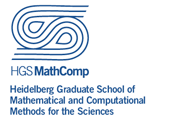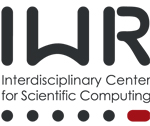Currently Heidelberg University is establishing a PhD Research Training Group (RTG)
on “Big Data Research“ together with several Indian Universities and Indian Institutes of Technology (IIT) in the context of the HGS MathComp at the IWR (Interdisciplinary Center for Scientific Computing). Partners from India include Allhabad University, Delhi University (MoU pending), Jawaharlal Nehru University, IIT Guwahati, IIT Kanpur and IIT Madras.
While the main focus is on big data research in the biosciences, also the GIScience Research Group Heidelberg is participating, because of the similarity of methods and technologies that are being used.
The program just started with a Winter School on Big Data Research at Heidelberg University. Currently several participants from India visit Heidelberg University for a 2 months period. During that time several half day compact courses are given for the students from India. On Tuesday March 13 it is the turn for GIScience HD with Prof. Alexander Zipf presenting an overview of Big Data Research at GIScience Heidelberg and René Westerholt giving a Primer on Spatial Analysis “Geographic thinking in computing”. The different participants are hosted by the participating principal investigators of the RTG Big Data Research. We are looking forward to fruitful results from that Winter School and further collaboration with the partner institutions from India.

Geographic Information has become big in recent years as the spatial and temporal resolution of data increases considerably and global coverage is the goal. Vast amounts of unstructured and spatially attributed data are continuously generated and available on the web, from technical sensors on the earth, remote sensing and produced by humans. Prominent examples include Volunteered Geographic Information like OpenStreetMap (OSM) or from Social Media.
With our background in GIScience and using methods such as geocomputation, data mining and machine learning, we extract precious knowledge from such datasets, e.g. by finding latent patterns and regularities to answer research questions on geographical phenomena relevant for society or environment. In combination with official geographical information from public administrations these have become an important asset e.g. for disaster management purposes. Processing, analyzing and aggregating these different kind of data sources enables e.g. humanitarian aid organizations and emergency responders to obtain a comprehensive view of the specific catastrophe on site to name one application. Our overall goal is to integrate, improve and enrich geographic information such as OSM or to derive new information layers e.g. through data fusion and machine learning.
Date:
Tuesday, March 13, 2018
9:15 a.m. – 12:15 p.m.
Location:
Mathematikon,
Im Neuenheimer Feld 205
Seminar room 10
69120 Heidelberg



